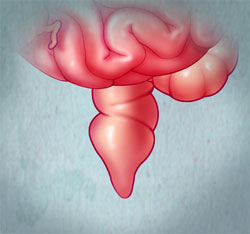
Constipation is a condition characterized by infrequent or hard bowel movements or difficulty in having bowel movements. Also known as irregularity, constipation can include pain when having a bowel movement, an inability to “go” after trying for more than ten minutes or having no bowel movement after more than three days.
Everyone’s habits and patterns are different, so what is considered “normal” varies from person to person. Some healthy people may not have a bowel movement every day; others might have particularly soft or hard stools (another term for bowel movements) but have no problems passing them.
FAQs
Constipation is usually caused by not eating enough fiber or drinking enough water, lack of physical activity, or delaying going to the bathroom when you feel the urge. Stress, travel or other changes in your routine can also interfere with normal bowel function. Bowel diseases, like irritable bowel syndrome, pelvic floor dysfunction, certain medications, pregnancy, neurological diseases, mental health problems or conditions such as an underactive thyroid or cystic fibrosis, can also be contributing factors.
Drink plenty of fluids, eat a high-fiber diet, get regular exercise and don’t wait to use the restroom when you feel the urge to have a bowel movement. If you are in a wheelchair, unable to get out of bed or can’t exercise for other reasons, change your position often and do abdominal exercises and leg raises, if possible (a physical therapist can recommend specific exercises that are right for you.)
There are a number of different remedies you can try: stool softeners with docusate sodium, bulk laxatives, like psyllium, or suppositories or gentle laxatives, like mineral oil or milk of magnesia. Be careful if you choose laxatives, since over long periods of time you can become dependent on them.
Enemas should only be used in severe cases.
Sudden constipation with abdominal cramps and an inability to pass gas or stool can indicate an intestinal blockage, which is very serious. In this situation, do not take any laxatives and call your doctor right away.
Although not as severe as a blockage, you should contact your doctor as soon as possible if you have severe abdominal pain and bloating, blood in your stool, constipation alternating with diarrhea, thin, pencil-like stools, rectal pain, unexplained weight loss or have been using laxatives or other home treatments for several weeks and getting no results.